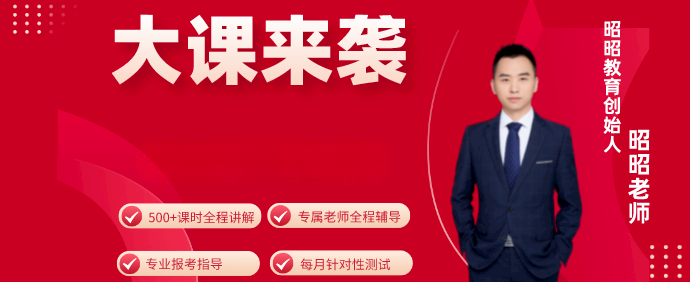
当前位置: 研招信息首页 > 历年考题(考生回忆版) > 正文
以下是小昭为大家整理的历年英语考题(考生回忆版)及答案解析,希望对即将参加考研的同学们有所帮助。
Section Ⅰ Use of English
Directions:
Read the following text. Choose the best word(s) for each numbered blank and mark A, B, C or D on the ANSWER SHEET. (10 points)
Today we live in a world where GPS systems, digital maps, and other navigation apps are available on our smartphones. 1 of us just walk straight into the woods without a phone. But phones 2 on batteries, and batteries can die faster than we realize. 3 you get lost without a phone or a compass, and you 4 can’t find north, we have a few tricks to help you navigate 5 to civilization, one of which is to follow the land.
When you find yourself well 6 a trail, but not in a completely 7 area, you have to answer two questions: Which 8 is downhill, in this particular area? And where is the nearest water source? Humans overwhelmingly live in valleys, and on supplies of fresh water. 9 , if you head downhill, and follow any H2O you find, you should 10 see signs of people.
If you’ve explored the area before, keep an eye out for familiar sights – you may be 11 how quickly identifying a distinctive rock or tree can restore your bearings.
Another 12 : Climb high and look for signs of human habitation. 13 , even in dense forest, you should be able to 14 gaps in the tree line due to roads, train tracks, and other paths people carve 15 the woods. Head toward these 16 to find a way out. At night, scan the horizon for 17 light sources, such as fires and streetlights, then walk toward the glow of light pollution.
18 , assuming you’re lost in an area humans tend to frequent, look for the 19 we leave on the landscape. Trail blazes, tire tracks, and other features can 20 you to civilization.
前四题请在文章中下载附件获取
5. [A] back[B] next[C] around[D] away
6. [A] onto[B] off[C] across[D] alone
7. [A] unattractive[B] uncrowded[C] unchanged[D] unfamiliar
8. [A] site[B] point[C] way[D] place
9. [A] So[B] Yet[C] Instead[D] Besides
10. [A] immediately[B] intentionally[C] unexpectedly[D] eventually
11. [A] surprised[B] annoyed[C] frightened[D] confused
12. [A] problem[B] option[C] view[D] result
13. [A] Above all[B] In contrast[C] On average[D] For example
14. [A] bridge[B] avoid[C] spot[D] separate
15. [A] from[B] through[C] beyond[D] under
16. [A] posts[B] links[C] shades[D] breaks
17. [A] artificial[B] mysterious[C] hidden[D] limited
18. [A] Finally[B] Consequently[C] Incidentally[D] Generally
19. [A] memories[B] marks[C] notes[D] belongings
20. [A] restrict[B] adopt[C] lead[D] expose
SectionⅡReading Comprehension
Part A Directions:
Read the following four texts. Answer the questions after each text by choosing A, B, C or D. Mark your answers on the ANSWER SHEET. (40 points)
Text 1
Financial regulators in Britain have imposed a rather unusual rule on the bosses of big banks. Starting next year, any guaranteed bonus of top executives could be delayed 10 years if their banks are under investigation for wrongdoing. The main purpose of this “clawback” rule is to hold bankers accountable for harmful risk-taking and to restore public trust in financial institutions. Yet officials also hope for a much larger benefit: more long-term decisionmaking, not only by banks but by all corporations, to build a stronger economy for future generations.
“Short-termism” or the desire for quick profits, has worsened in publicly traded companies, says the Bank of England’s top economist, Andrew Haldane. He quotes a giant of classical economics, Alfred Marshall, in describing this financial impatience as acting like “children who pick the plums out of their pudding to eat them at once” rather than putting them aside to be eaten last.
The average time for holding a stock in both the United States and Britain, he notes, has dropped from seven years to seven months in recent decades. Transient investors, who demand high quarterly profits from companies, can hinder a firm’s efforts to invest in long-term research or to build up customer loyalty. This has been dubbed “quarterly capitalism.”
In addition, new digital technologies have allowed more rapid trading of equities, quicker use of information, and thus shorter attention spans in financial markets. “There seems to be a predominance of short-term thinking at the expense of long-term investing,” said Commissioner Daniel Gallagher of the US Securities and Exchange Commission in a speech this week.
In the US, the Sarbanes-Oxley Act of 2002 has pushed most public companies to defer performance bonuses for senior executives by about a year, slightly helping reduce “short-termism.” In its latest survey of CEO pay, The Wall Street Journal finds that “a substantial part” of executive pay is now tied to performance.
Much more could be done to encourage “long-termism,” such as changes in the tax code and quicker disclosure of stock acquisitions. In France, shareholders who hold onto a company investment for at least two years can sometimes earn more voting rights in a company.
Within companies, the right compensation design can provide incentives for executives to think beyond their own time at the company and on behalf of all stakeholders. Britain’s new rule is a reminder to bankers that society has an interest in their performance, not just for the short term but for the long term.
21.According to Paragraph 1, one motive in imposing the new rule is to
[A]enhance bankers’ sense of responsibility.
[B]help corporations achieve larger profits.
[C]build a new system of financial regulation.
[D]guarantee the bonuses of top executives.
22.Alfred Marshall is quoted to indicate
[A]the conditions for generating quick profits.
[B]governments’ impatience in decision-making.
[C]the solid structure of publicly traded companies.
[D]“short-termism” in economic activities.
23.It is argued that the influence of transient investment on public companies can be
[A]indirect.
[B]adverse.
[C]minimal.
[D]temporary.
24.The US and France examples are used to illustrate
[A]the obstacles to preventing “short-termism”.
[B]the significance of long-term thinking.
[C]the approaches to promoting “long-termism”.
[D]the prevalence of short-term thinking.
25.Which of the following would be the best title for the text?
[A]Failure of Quarterly Capitalism
[B]Patience as a Corporate Virtue
[C]Decisiveness Required of Top Executives
[D]Frustration of Risk-taking Bankers
以上是昭昭西医考研部分考题(考生回忆版)的展示内容,因为内容较多。小昭已经将考题(考生回忆版)全部整理放到附件中(包括答案),请自行点击下载即可使用。
免责声明:本站所提供的内容均来源于网络,如涉及侵权问题,请联系本站管理员予以更改或删除。


 扫码加入
扫码加入
 扫码加入
扫码加入
 扫码加入
扫码加入
 扫码加入
扫码加入
 扫码加入
扫码加入
 扫码加入
扫码加入

